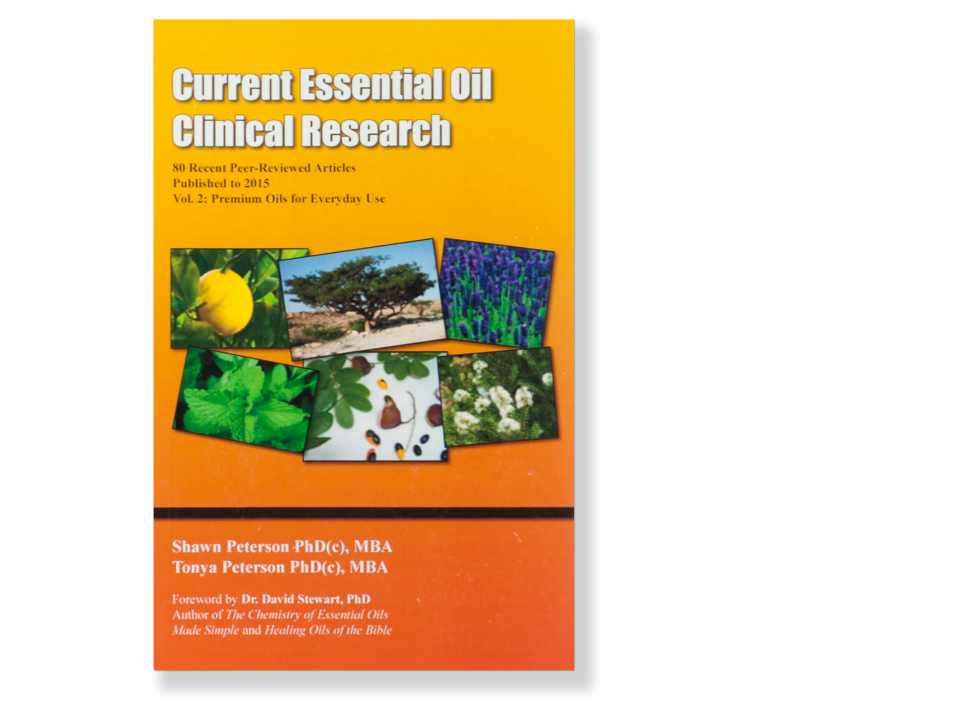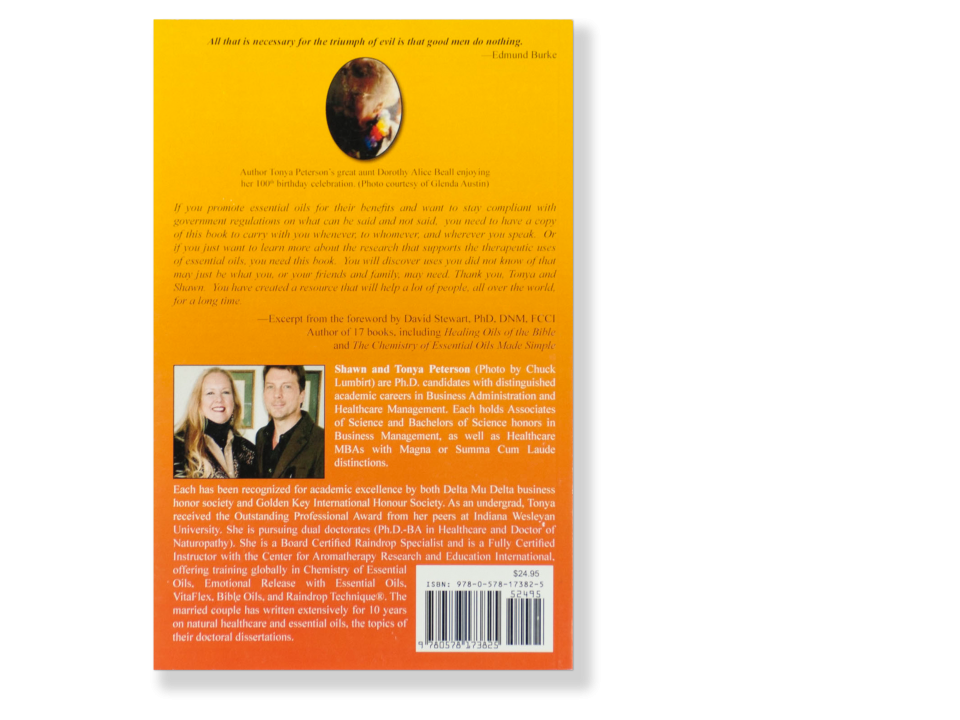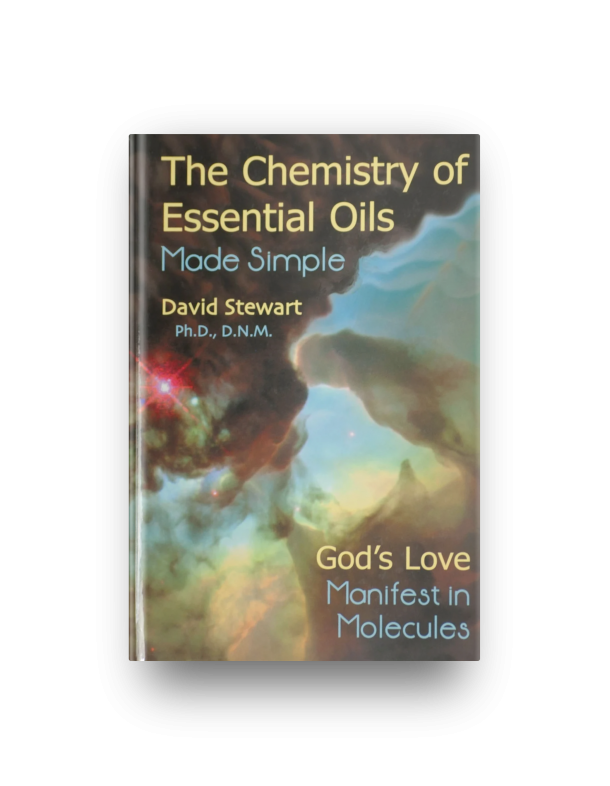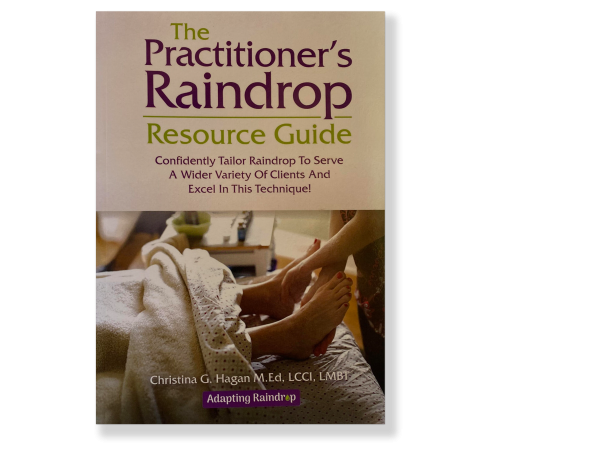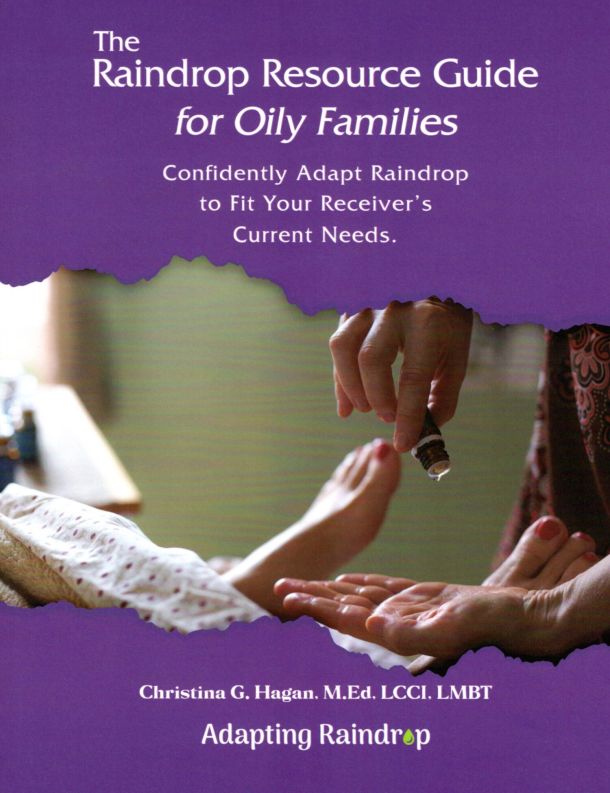Current Essential Oil Clinical Research V 2
Shawn & Tonya Peterson, MBA
$24.95
978-0934426947
Only 22 left in stock
Only 22 left in stock
Current Essential Oil Clinical Research V 2 – If you are an essential oiler and encounter sceptics who want you to show them valid research proving the effectiveness and safety of the oils, you need this book (Vol. 2), as well as its companion (Vol 1) reviewed above. The Peterson Team have compiled a comprehensive world-wide review of the scientific literature from 2003 to 2015, from research carried out in more than 30 countries. It was a herculean effort and accomplishment on their parts. This (Vol. 2), and their previous work (Vol. 1), puts you in contact with a whole library of scientific resources documenting the benefits of essential oils.
Every citation is accompanied with a reader-friendly abstract summarizing the modalities and research results of each publication. This book is Volume 2 of a series they are producing. While this volume (2) focuses on the “Premium Oils for Every-Day Use,” their First Volume focused on Raindrop Technique and the Oils of the Bible. Their next book (Vol. 3) will cover all of the oils in the Essential Oil Desk Reference, which should be available next year (2017).
The book is organized by applications and therapeutic properties with specific oils in each category. Therapeutic properties listed with their appropriate oils are: Anti-Tumoral, Immunostimulant, Antidepressent, Muscle-Relaxant, Circulation Enhancing, White Blood Cell Supporting, Memory Enhancing, Acne Abatement, Anti-Parasitic, Gasoprotectant, Antiseptic, Antifungal, Analgesic, Anticonvulsant, Vasodilating, Anti-Inflammatory, Cholesterol Reducing, Antibacterial, Antiviral, Gall Bladder Supportive, Appetite Suppressant, and Anti-Ulcerative. Research on the benefits of specific oils include Copaiba, Rose, Bergamot, Mandarin, Lemon, Ylang Ylang, Geranium, Jasmine, Palmarosa, German Chamomile, Coriander, Citronella, Lemongrass, Lavandin, Rosemary, Tea Tree, Helichrysum, Clove, Cinnamon, and more. @@@ Volume 2 also contains a helpful glossary of technical terms found in the abstracts, some of which contain scientific jargon with which you may not be familiar. Also, while the US Government agencies, namely the FDA, FTC, and EPA, are cracking down on making claims for the benefits of essential oils (only “drugs” can heal, they claim), these agencies say it is okay to mention the benefits for essential oils if you can cite published peer-reviewed scientific research for what you say. Properly utilized, these volumes provide you with the citations for research that satisfy government demands so you may legally inform people of the benefits of essential oils.
Shawn and Tonya Peterson are a husband-wife team of researchers finishing up their doctorates in clinical research. This Volume (2), and the one reviewed above (Vol. 1 )is an extension of the work they have done as partial fulfillment of their doctoral dissertations. Scholarly, useful, comprehensive, and accurate. You will be glad to have this book in your reference collection. These volumes will help you discover the oils you need for specific purposes, and to provide the answers when people question you about their properties.
135 pages. 8.5×5.5″ Perfect Bound.
Shop by category
- Healing Oils of the Bible
- Raindrop Technique
- DVD
- Vitaflex
- CCI Required Text
- Chemistry of Essential Oils Made Simple
- Educational
- Dr. David Stewart Ph. D
- Health and Wellness
- req
- Informational
- Resource Guide
- Pamphlets
- CCI Summit 2025 St. Louis
- Scientific
- 2025 Advanced Bible Oils
- Business Builders
- Books By David Stewart Ph. D.
- Spanish Translation
- German Translation
